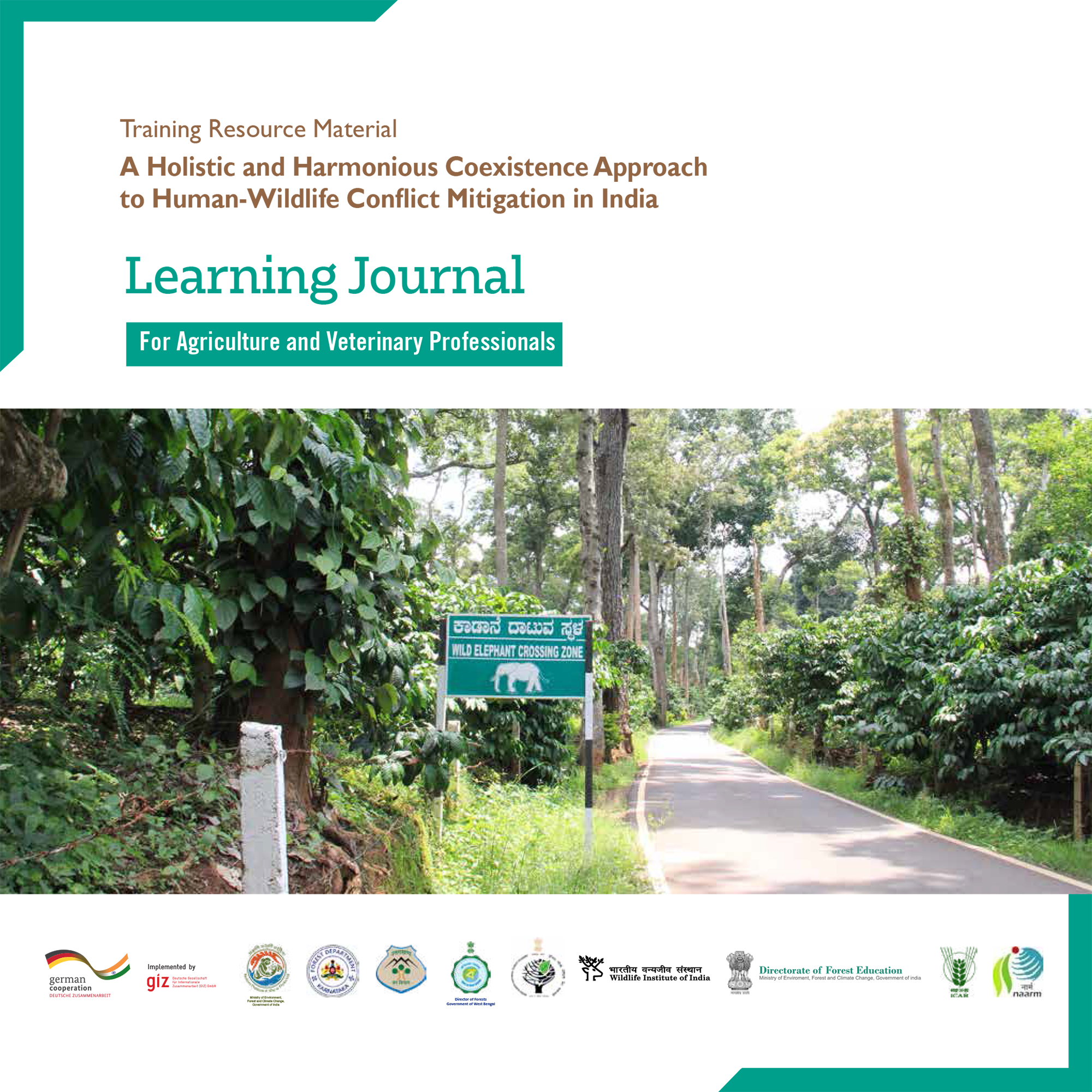Mitigation of human-wildlife conflict is becoming a key area of concern for not only wildlife managers and local communities but also the district and state administrations. There is a need to create an enabling environment to address human-wildlife conflict holistically, with participation from all key stakeholders and sectors.
One of the most effective ways of addressing the issue on a long-term basis is to invest in capacity development of key stakeholders for facilitating them in co-creating effective and sustainable solutions for mitigating human-wildlife conflict.
A holistic capacity development system is designed under the Indo-German Project Human-Wildlife Conflict Mitigation in India (HWC) for addressing key competencies of relevant stakeholders from the forest sector, including in-service and probationary Indian Forest Service officers, in-service and probationary state forest service officers and decision-makers at the national and state levels, and agriculture sector professionals and students, who are key to developing and implementing HWC mitigation measures in India.
The curriculum is modularised, with modules being delivered using different training methods over required time periods. The modularised structure provides flexibility to adapt the contents, methods and durations of different topics on the basis of the training needs of the participants. Learning outcomes have been formulated for different groups of participants, and so the modules can be used in any combination and over different durations, for specific purposes and to fit specific training schedules.
A unique feature of the curriculum is that it focuses on HWC using the "thematic triangle" of driver-prevention– damage reduction.
There are some common modules for all key stakeholders. These cover common issues and the basics of HWC. Specialized modules have been developed to deepen the understanding and skills of different training groups in their respective fields.
The curriculum uses a mix of conceptual and hands-on training sessions, in almost equal proportions, to facilitate the application of conceptual knowledge and skills to field conditions and the appreciation and understanding of the issue of HWC in a larger development context by the participants.
The Trainer's Toolkit is useful for the faculty members and experts of agriculture academies, State Agriculture Universities, other agriculture training institutes, KVKs, as well as for the agriculture sector experts facilitating workshop/ training sessions. This kit contains all the modules and a trainer's guide.
.jpg)
Trainer’s Guide: A Participatory approach to planning and implementing trainings on Human-Wildlife Conflict Mitigation in India (2023)
This trainer’s Guide facilitates the trainers and faculty members of trainings institutions of forest-wildlife, agriculture-veterinary, public health, media, rural development and Panchayati Raj and other relevant sector in planning, implementing and updating the trainings on holistic approach to HWC mitigation effectively through enhanced learning of the participants.
The Trainer’s Guide contains notes that provide the details on the competency framework, competencies-based training curriculum for key actors and stakeholders, provides sample training plans to implement the curriculum, and a detailed section to facilitate use of participatory training methods.
The guide also serves as a compendium of selected participatory training methods, which are innovative, have been tested for their effectiveness, and are easy to be applied. The training methods can be customised to suit the learning objectives, audience, time availability, resource availability and other factors. It is also possible to include new case studies, relevant reading material or training activities as they become available. This guide provides general notes on planning, implementing and evaluating participatory trainings on ‘holistic approach to HWC mitigation in India’, and ‘Taking a One Health Approach to HWC Mitigation in India’ and specific tools for target-group-specific trainings for participants from, agriculture, media, community-institutions and field response teams. To access the Trainer’s Guide, Click here

Content modules, or Training Resource Material contain modules that will facilitate both trainers and participants in receiving background information on the training topics, apart from a field manual that will specifically be used by front-line staff. To access the Training Resource Material, Click here

Learning Journal, To facilitate the participant’s learning during and after the training, a learning journal is designed to help them capture anything that is of any significance or value to them and may help in enhancing their understanding of the HWC Mitigation and One Health concept, in general, and its application in the field, in particular. It is a place for participants to take notes on their observations on people, animals, systems, environment, and processes during the training.
To access the Learning Journal for agriculture and veterinary sector professionals, Click here
© 2014 IGBP. All Rights Reserved.
Site By: Virtualpages
